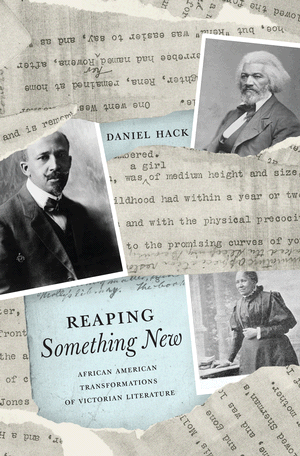The Allure of Blackness among Mixed-Race Americans, 1862-1916Posted in Biography, Books, History, Media Archive, Monographs, United States on 2019-10-04 23:09Z by Steven |
The Allure of Blackness among Mixed-Race Americans, 1862-1916
University of Nebraska Press
October 2019
320 pages
7 photos, 3 drawings, index
Hardcover ISBN: 978-1-4962-0507-0
Ingrid Dineen-Wimberly, Professor of History
University of La Verne, Point Mugu, California
In The Allure of Blackness among Mixed-Race Americans, 1862–1916, Ingrid Dineen-Wimberly examines generations of mixed-race African Americans after the Civil War and into the Progressive Era, skillfully tracking the rise of a leadership class in Black America made up largely of individuals who had complex racial ancestries, many of whom therefore enjoyed racial options to identity as either Black or White. Although these people might have chosen to pass as White to avoid the racial violence and exclusion associated with the dominant racial ideology of the time, they instead chose to identify as Black Americans, a decision which provided upward mobility in social, political, and economic terms.
Dineen-Wimberly highlights African American economic and political leaders and educators such as P. B. S. Pinchback, Theophile T. Allain, Booker T. Washington, and Frederick Douglass as well as women such as Josephine B. Willson Bruce and E. Azalia Hackley who were prominent clubwomen, lecturers, educators, and settlement house founders. In their quest for leadership within the African American community, these leaders drew on the concept of Blackness as a source of opportunities and power to transform their communities in the long struggle for Black equality.
The Allure of Blackness among Mixed-Race Americans, 1862–1916 confounds much of the conventional wisdom about racially complicated people and details the manner in which they chose their racial identity and ultimately overturns the “passing” trope that has dominated so much Americanist scholarship and social thought about the relationship between race and social and political transformation in the nineteenth and twentieth centuries.
Table of Contents
- List of Illustrations
- Introduction
- Chapter 1. “As a Negro I will be Powerful”: The Leadership of P.B.S. Pinchback
- Chapter 2. Post-Bellum Strategies to Retain Power and Status: From Political Appointments to Property Ownership
- Chapter 3. New Challenges and Opportunities for Leadership: From Domestic Immigration to “The Consul’s Burden”
- Chapter 4. “Lifting as We Climb”: The Other Side of Uplift
- Conclusion
- Bibliography
- Index








